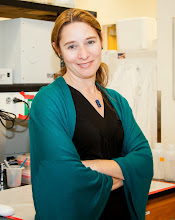Who remembers Monty Python’s Quest for the Holy Grail? “Bring out your dead, bring out your dead…”
How about bringing out the undead - into the scrutiny of neuroscience? The new
field of zombie neuroscience combines the public zombie obsession with serious
science aimed at teaching the public about brain research through the lens of
zombie behavior.
Zombies are hot right now; a friend recently ran a 5K race
that involved dodging zombies en route to the finish line. Postdoc Bradley
Voytek and Assistant Professor Timothy
Verstynen use this zombie epidemic to their advantage, using bona fide
neuroscience concepts to postulate how zombie brains are different from normal
humans. They’ve spoken at Comic Con and
other popular venues and they are advisory board members of the Zombie Research Society (who
knew?).
Yes, zombie research won’t get you tenure, and Comic Con isn’t
exactly an AAAS meeting. But reaching the public in an interesting, meaningful
way is important! What tools or cultural
trends do you use to make science relevant?
Are zombies an appropriate outreach subject for serious scientists? Weight in!

Science is always relevant as I see it. Whether the public or specific individuals are interested in really a matter of convenience. The Zombie/Vampire fad going along is definitely one avenue of reaching people and explaining scientific concepts that can be applied theoretically to fiction. I mean in the end scientists are often able to conceive the most compelling fictions. Simply due to an understanding of underlying principles that can be used to extrapolate "believable" fantasies.
ReplyDelete